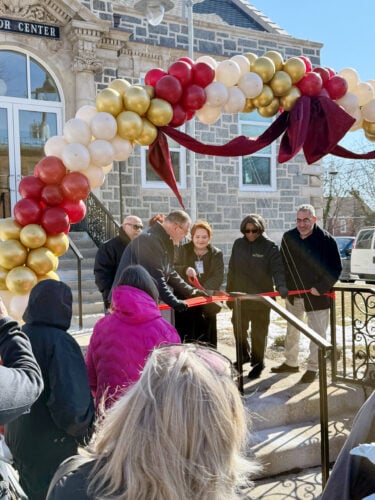COVID-19 is Killing Young Latino Men in NJ at Disproportionate Rates

This story is being republished under a special NJ News Commons content-sharing agreement related to COVID-19 coverage. Link to story: wnyc.org/story/covid-killing-young-latino-men-nj-disproportionate-rates/
 Every morning since Elizabeth Rojano-Morales can remember, her father would come into her bedroom on her birthday with her favorite ice cream, chocolate-vanilla.
Every morning since Elizabeth Rojano-Morales can remember, her father would come into her bedroom on her birthday with her favorite ice cream, chocolate-vanilla.
“My last birthday, he gave me a cone,” Elizabeth, 19, said. But this May, when she turns 20, her father won’t be there to bring her ice cream or tickle her awake or make fun of her love of K-pop. Reinaldo Rojano died of COVID-19 on December 14th. He was 44.
“I never imagined that I would lose him. If I would have known, I would have shared more of my life with him,” Elizabeth said.
Rojano washed cars at the Super Car Wash and Quick Lube off Route 1-9 right next to their home in Elizabeth, where his family thinks he caught the virus. Four other employees at the car wash, including Rojano’s son, also tested positive, said Francisco Morales, 43, who works there. One staff member was hospitalized.
While pre-existing health conditions have been oft-cited during the pandemic, less attention has been paid to how workplace and living conditions contribute to the disparities in COVID-19 outcomes. At this corner car wash in the state’s fourth-largest city, one can see these risk factors play out in real life.
Workers clean inside the car’s tight quarters as passengers get out and watch a massive conveyor belt pull their automobiles through the soapy chemicals and scrub cycles. Rojano usually helped drive the vehicles onto the automatic belt, vacuumed the floors, and handled the payments.
Rojano was one of 361 young Latino men killed by COVID-19 since the state’s first pandemic death a year ago. They account for nearly half—43 percent—of the confirmed coronavirus fatalities among adults under 50 years old, even though Latino men comprise only 12 percent of this young adult population.
Nationwide, Latinos in total make up 44 percent of COVID-19 deaths among young adults, according to data from the Centers for Disease Control and Prevention. But keep in mind that this last figure encompasses both men and women. Something about New Jersey’s pandemic is striking young Latino men in outsized droves.
Looking deeper, COVID-19 killed young Hispanic men in New Jersey at four and a half times the rate of Hispanic women, twice the rate of young Black men, and seven times that of young white men, according to an analysis by WNYC/Gothamist of confirmed deaths.
“We are losing whole generations of fathers,” said Stephanie Silvera, an epidemiologist at Montclair State University. “And there is no way of understanding the economic, as well as the emotionally traumatic impact that that’s going to have on their families, their children, and generations to come.”
For more, visit Gothamist.








